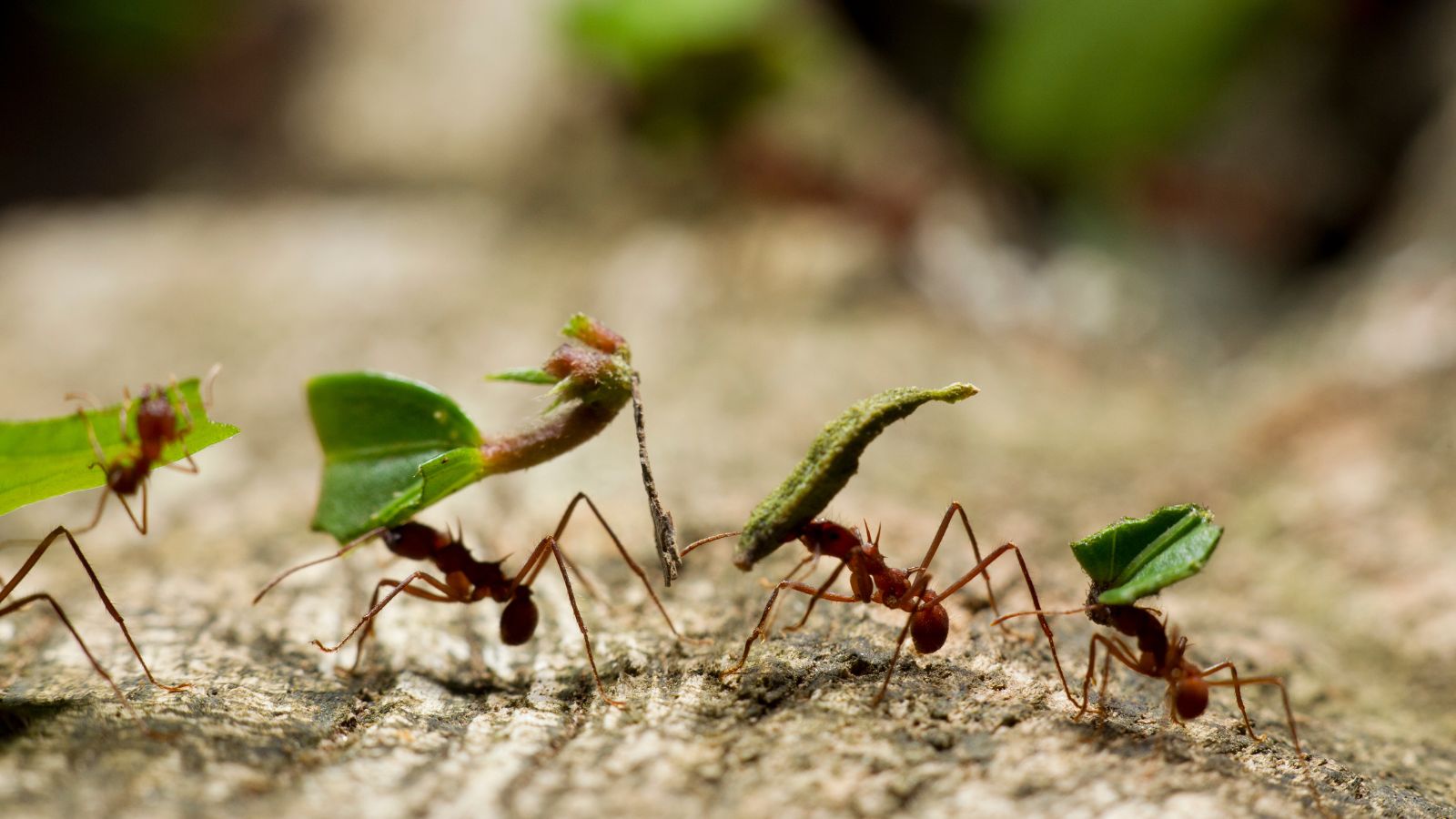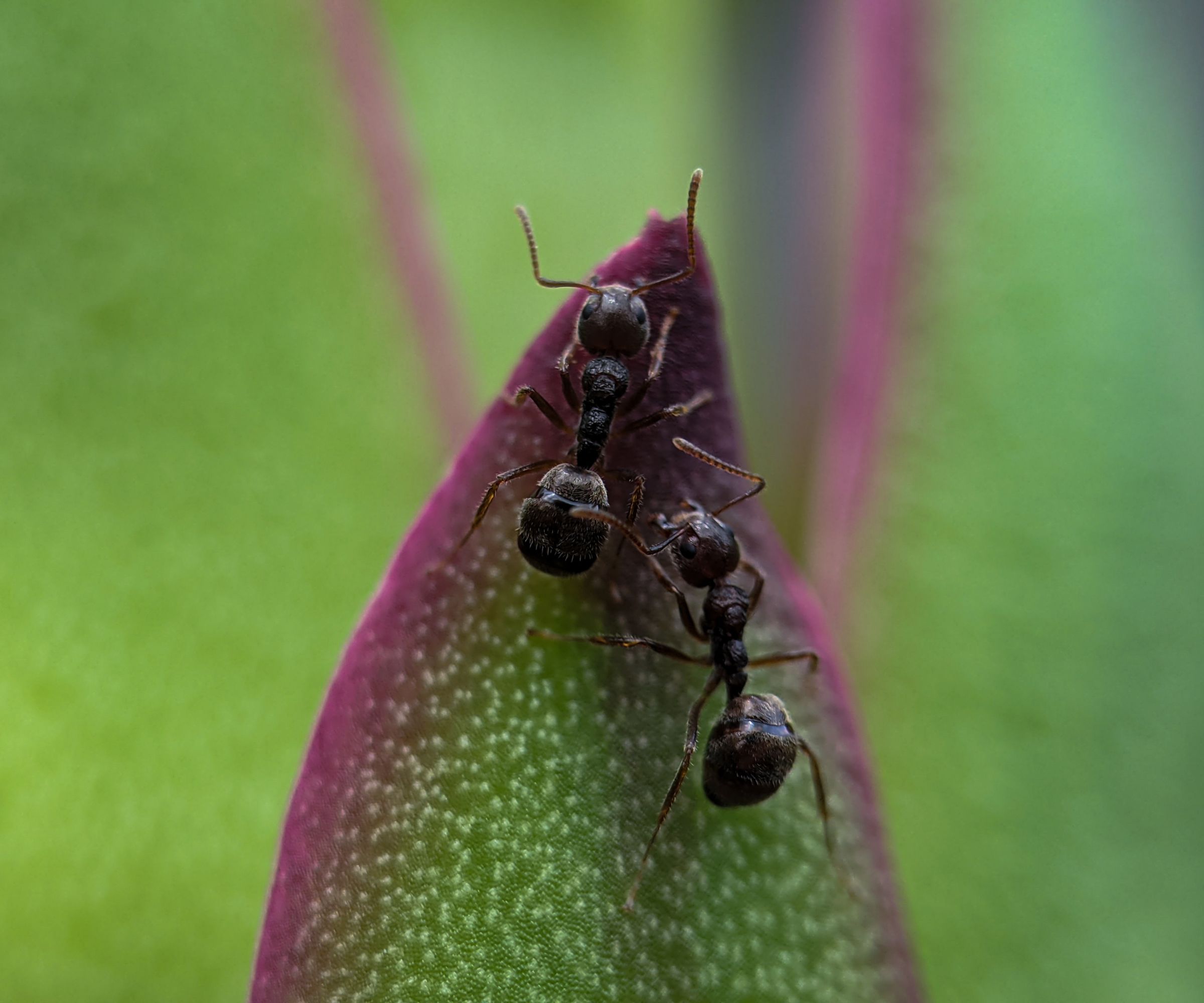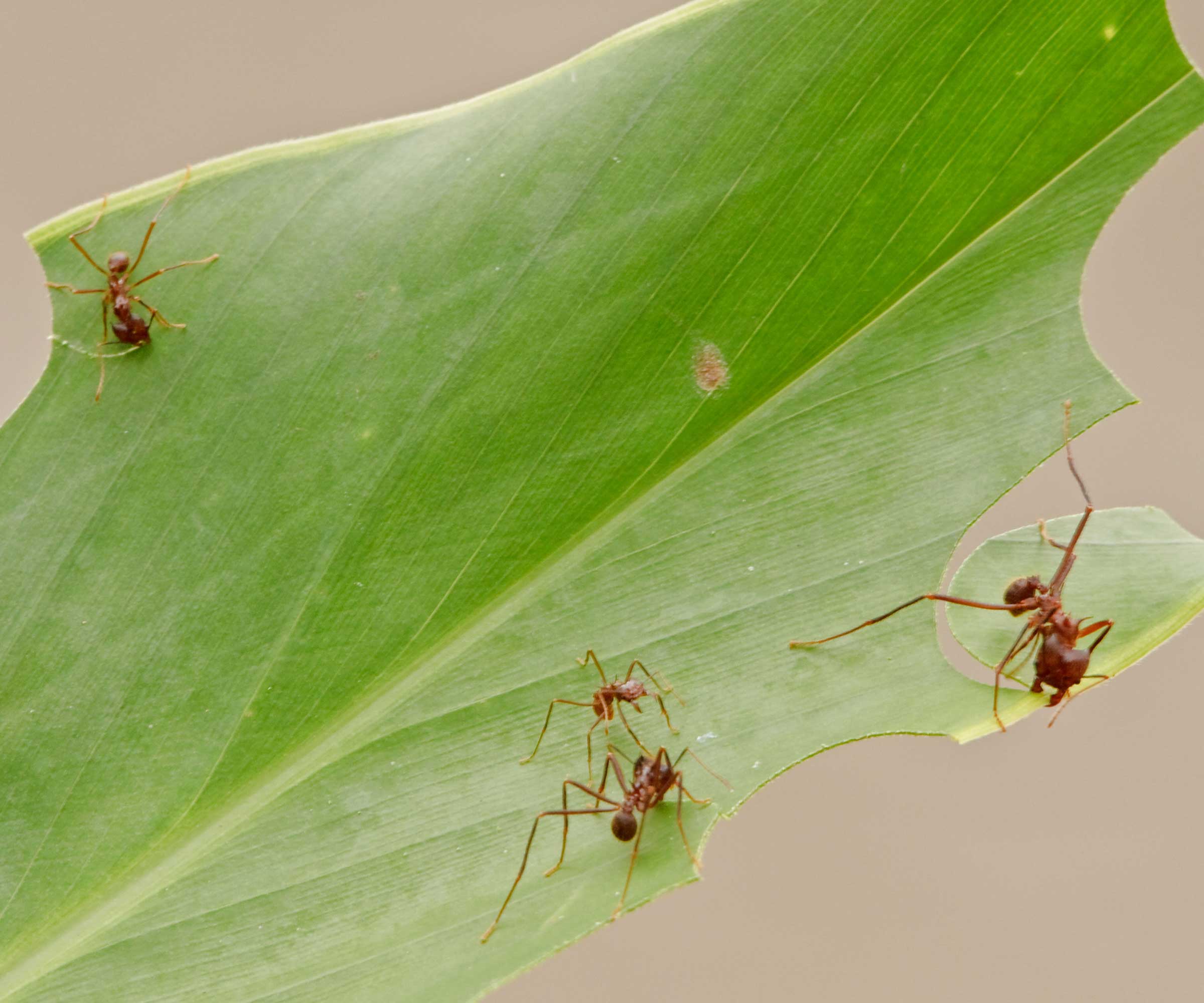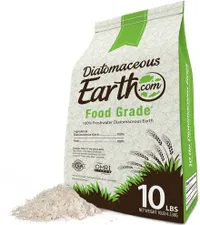Are ants bad for a garden? Gardening experts assess their benefits
We often think all pests are troublesome, but ants could be a great garden friend, experts say


Design expertise in your inbox – from inspiring decorating ideas and beautiful celebrity homes to practical gardening advice and shopping round-ups.
You are now subscribed
Your newsletter sign-up was successful
Want to add more newsletters?

Twice a week
Homes&Gardens
The ultimate interior design resource from the world's leading experts - discover inspiring decorating ideas, color scheming know-how, garden inspiration and shopping expertise.

Once a week
In The Loop from Next In Design
Members of the Next in Design Circle will receive In the Loop, our weekly email filled with trade news, names to know and spotlight moments. Together we’re building a brighter design future.

Twice a week
Cucina
Whether you’re passionate about hosting exquisite dinners, experimenting with culinary trends, or perfecting your kitchen's design with timeless elegance and innovative functionality, this newsletter is here to inspire
Despite being outside, many of us see almost any bug in our yards and gardens as a pest and immediately try to get them away from our precious plants. The most common of these insects to spot is the common ant. But are ants really bad for a garden?
Quite the contrary. Gardening experts say that these active insects could be incredibly beneficial to our outdoor spaces. So while you may rush to get rid of ants indoors, you may want to leave them be in your yard.
Here, we break down the benefits of ants in a garden or yard, as well as when to start controlling their spread, with the advice of gardening experts.
Are ants bad for a garden?
Whether you deem ants as bad for your garden or not depends on a few factors; namely the type of ant, and if they are causing serious damage or not, experts begin.

On a positive note, ants can encourage the health of your yard and garden in several ways, explains Dominique Kline, farm manager at The Hope Farm.
‘They play a vital role in soil health and in the ecosystem as a whole,’ she explains. ‘Through their tunneling, ants aerate the soil, creating small pathways for vital oxygen and water. Although it sounds negative, ants will also farm aphids, encouraging their safety in order to harvest the “honeydew” that is a natural by-product of their waste.
'Aphids may be a frustrating pest to deal with in the garden, but they are a huge part of what attracts beneficial predatory insects like lady beetles or lacewings and contribute to the food web that ultimately makes for a thriving garden and perfect plants – even if they are irritating to deal with at first (and you can always introduce ladybirds to your garden to help combat this and restore a healthy balance).
Design expertise in your inbox – from inspiring decorating ideas and beautiful celebrity homes to practical gardening advice and shopping round-ups.
‘My preferred approach is to only discourage ants if they start to completely take over an area and interfere with the ability to access crops. I do not seek to eradicate them, but rather, to relocate them,’ she adds.

If possible, ants outdoors are best left undisturbed
On the other hand, certain types of ants, such as fire ants, can be incredibly troublesome and even dangerous if you frequently garden or have pets that roam in your yard, adds Chris Call, pest control expert, and region manager of Fox Pest Control, New York.
As a result, you will want to get rid of red ants (or fire ants), as soon as you spot them. The same goes for getting rid of carpenter ants to protect the integrity of your home and outdoor furniture.
Furthermore, despite the ant’s protectiveness of aphids to encourage a self-sustaining ecosystem, too many of these tiny green bugs can ultimately damage your plants as they cause white mold or chomp away at the leaves in droves.
If this is becoming the case, it may be a good idea to introduce ladybirds to your garden to help discourage both aphids and ants and protect your growth.
How to encourage ants in your garden
If you are looking to encourage a natural, balanced ecosystem in your garden or yard naturally, then there are a few ways you can encourage ants into your space.
To do this, Benita Middleton, head gardener at Benita’s Garden Services, recommends cutting back on your use of chemicals in the garden, including reducing your reliance on pesticides to ensure ant well-being.
‘It is also a good idea to add in watering stations, such as a shallow dish or a bird bath to encourage ants and birds in equal measure, allowing the ants to thrive and the birds to keep check of their populations before they overrun your outdoor space,’ she adds.
Another thing you can do is plant a wildlife garden, designed with native grasses and wildflowers to help create a haven for a whole host of beneficial insects, including ants.

Benita started working as a self-employed gardener in 1999 after completing the RHS General course followed by an RHS two distance learning course in 2013. During this time, she has gained experience maintaining, restoring, planning, and planting gardens for private clients and business customers.
How to control the movement of ants in your garden
If you want to limit the movement of ants into or around your garden and yard, or are suddenly finding you are having to get rid of ants in the kitchen, then adding in some protective measures can help to keep them away from certain plants or away from the perimeter of your home:
1. Use physical barriers
When discouraging ants, natural barriers are the best option for keeping them away from certain areas such as flower beds or pots. One of the best barriers is diatomaceous earth, says Benita Middleton, head gardener. It acts as a formidable deterrent, thwarting their ascent up plant stems by damaging their legs and bodies, she explains.
Diatomaceous Earth 10lbs | $27.99 at Amazon
Even our gardening experts swear by diatomaceous earth to help control pests in their yards and their houseplants. This brand is highly rated by users on Amazon and is 100% organic, making it perfect for sustainable gardens.
2. Utilize different smells
There are several smells that ants hate that can be used to dissuade them from certain spots in your yard without the need for chemicals. Some common organic deterrents include coffee grounds, cinnamon, vinegar, or citrus peels, continues gardener Benita Middleton. ‘These scents offer gentle yet effective means to redirect their course away from delicate flora.’
If you have ant hills forming in your garden, scents can be a good way to encourage them to live elsewhere, adds Dominique Kline, farm manager. ‘I relocate them by spraying their hills with a water hose and using a mixture of cinnamon, cayenne, and diatomaceous earth,’ she explains.
3. Cut back on food sources
The biggest drive for any insect to settle in your garden is food, so limiting access to nutrients will discourage them from living in your yard. For ants, this means cutting off their access to anything sugary, says Gene Caballero, co-founder of GreenPal.
‘Keep your garden clean and free of spilled food, fallen fruits, and other organic debris that can attract them. Properly store and dispose of food waste to minimize ant activity too.’
FAQs
Is it normal to have a lot of ants in your garden?
Seeing ants in your yard or garden is normal, and if you have an excessive amount of ants it may be that your garden or yard has the perfect conditions for them to live and breed. This is not damaging so long as the ants do not make their way indoors, or their nest isn't disruptive to your plants. If they do become bothersome in numbers, consider some natural ways to deter or relocate ants.
Do ants damage block paving?
Ants can be damaging to block paving in yards and gardens as they burrow underneath and between them, encouraging the growth of moss and weeds in the gaps which can further disrupt the paving and make it look worn down. If this is happening in your outdoor space, it may be worth looking for some natural ways to dissuade them out of your yard before trying to make any repairs to prevent new damage from undoing your hard work.
Whether or not you consider ants bad for your garden is largely down to personal preference and the type of ants you have. In most cases, they are perfectly fine to have cohabiting in your yard, so long as they are providing your garden with benefits and not munching on your greenery or overprotecting aphids.
Keep an eye on any sudden swathes of ants, and be prepared to cut them back when needed for a perfectly balanced ecosystem for healthy plants and produce.

Chiana is Homes & Gardens’ kitchen appliances editor. With a lifelong passion for cooking and baking, she grew up experimenting in the kitchen every weekend with her baking-extraordinaire Mom, and has developed a great understanding of how tools and appliances can make or break your ideal relaxing kitchen routine.
